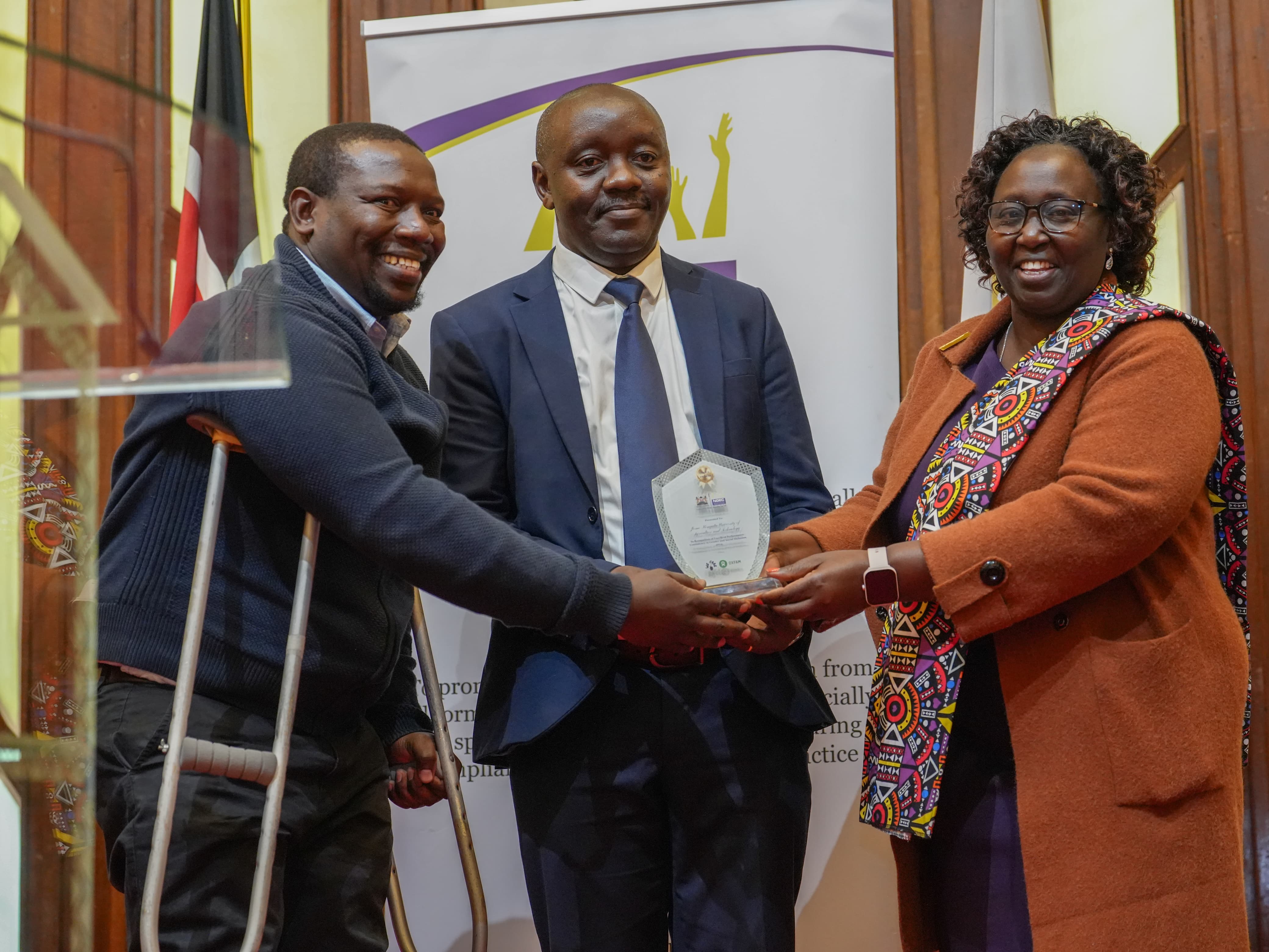

While growing up at Mariguini in the sprawling Mukuru Kayaba
suburbs of Nairobi City, my neighbour, Esther Wekesa, gave birth to a disabled
child.
This was a never-anticipated turn of events in our society
that, to a large extent, still believes disability is inability.
Everyone around the child, including its father, Lawrence
Wepukhulu, ran away and abandoned his responsibilities as a parent.
The mother, being left alone, was overwhelmed with feelings
of devastation and irritation, not knowing what to do next.
Looking around, stigmatization was at its peak,
discrimination at its worst, and to make matters worse, there were no funds to
support the child’s treatment. Every day, she would look at her child and see a
liability in her hands.
But as fate would have it—after months of struggle—a good
Samaritan seemed to have landed at her doorstep. A distant relative, Ms. Dorcas
Nasimiyu, who was working at the Ministry of Gender and Equality, brought good
news to Wekesa.
“There is help and hope for all children born naturally or
superficially disabled,” Nasimiyu comforted her, informing her that, through
her area chief, she could get all the required services to help lift the burden
off her shoulders financially and mentally.
This was a turning point for Esther. Without any hesitation,
she rushed to the chief’s camp and found that a notice had just been issued for
the registration of all disabled children. She was able to register for the
service, giving her a sense of comfort and a future for her child.
A simple truth echoes the spirit of the National Gender and
Equality Commission (NGEC) in its call to uphold the dignity and rights of
every child under its motto: “No child wishes to be born disabled.”
As emphasised in Kenya’s landmark Persons with Disabilities
Act 2025, “No one chooses to become disabled. Causes range from natural
(genetic or medical) to superficial (accidents, conflict or neglect).”
The NGEC, through its Disability and Elderly Department, is
vigorously championing this principle by advocating for inclusive policies,
monitoring accessibility, and combating the deep-rooted stigma that often leads
to neglect or mistreatment of children born with disabilities.
The Commission firmly stands against cultural narratives
that label disability as a curse or misfortune, insisting instead that every
child deserves the chance to live with dignity, access education, healthcare,
and be protected from harm or discrimination.
The launch of the National Gender and Equality Commission
Fourth Strategic Plan (2025–2029) and the celebration of the Usawa Awards on
9th July 2025, at the Safari Park Hotel, has given people living with
disabilities the confidence to stand up for themselves and be a voice for the
many who are voiceless.
The Strategic Plan (2025–2029) is rooted in compliance,
justice, inclusion, and innovation, with a special focus on Special Interest
Groups (SIGs) to tackle discrimination, scale up gender-responsive ICT, promote
climate justice, and ensure inclusive public services.
The Usawa Awards were presented to champions of equity to
honour those who dare to challenge the social status quo and drive change
across public and private sectors.
Presiding over the awards ceremony, the Cabinet Secretary
for Gender, Culture, The Arts and Heritage, Ms. Hanna Wendot Cheptumo, was
categorical in assuring Kenyans of gender mainstreaming and inclusion by all
means.
“We have and continue to engage in a bid to reintroduce the
gender mainstreaming indicator in the performance contracting guidelines,”
Wendot affirmed, noting that her ministry's aspiration is that ministries,
departments, and agencies will not just be measured by outputs and shillings
spent but by how those outputs advance inclusion and dignity.
“We remain steadfast in our duty to uphold the values of
inclusion, dignity, and fairness across all sectors. The ministry is committed
to advocating equity and ensuring equal access to opportunities for all,” CS
Cheptumo reiterated.
A study conducted by the World Health Organization, Long-term
Health Complications from FGM, shows that health complications of the
practice can be severe and lifelong, causing both mental and physical health
risks.
GBV and FGM practices have now been linked to generational
poverty and a lack of education for the parents.
Encouragingly, there has been a significant drop in FGM and
GBV cases, showing a 60 percent reduction, according to the British Medical
Journal.
Women who have been at risk have been saved in rescue
centres and legal measures have been taken against the practitioners.
Gracing the event, Government Spokesperson Dr. Isaac Mwaura
hailed the Strategic Plan 2025–2029, terming it progressive and capable of
dealing with all gender and equality cases, even as it raises voices that can
speak on behalf of others despite negative external forces.
“It is very courageous to stand up for equality. Sometimes,
you are alone with your voice. Sometimes, you are incognito. And sometimes, you
have to create your own narrative to understand yourself,” the spokesperson
stressed.
“There are also internal contradictions among the people
that you meet. You may need to use your own resources, and you may need to—you
know—just believe in yourself,” Dr. Mwaura affirmed.
He supported the need to reinstate the Gender Mainstreaming
Indicator into the Government Performance Contracting Framework so that “more
of us are able to speak about it,” following the Presidential directive to be
implemented.
“As Kenya seeks to move from intention to implementation,
the Commission stands as both a watchdog and a catalyst in ensuring that gender
equality and social justice are not mere aspirations, but a lived reality for
every Kenyan,” P.S. Wendot declared.
















